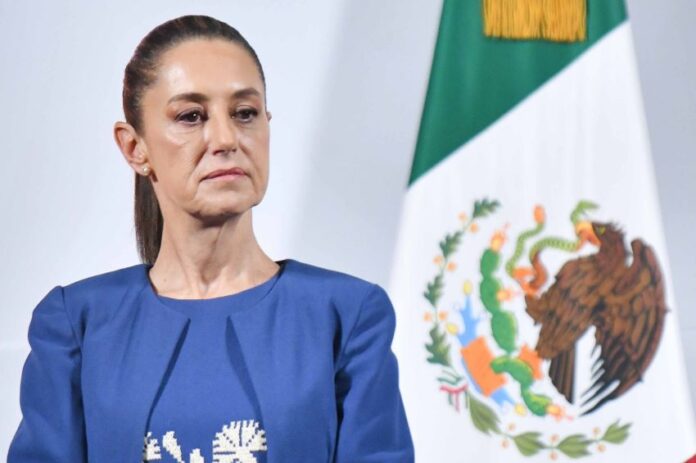President Claudia Sheinbaum held her Wednesday morning press conference approximately eight hours before U.S. President Donald Trump announced he would impose 25% tariffs on “all cars that are not made in the United States.”
At the mañanera, Sheinbaum said that she might speak to Trump before April 2, the date on which the United States is planning to impose reciprocal tariffs on imports from its trading partners around the world.
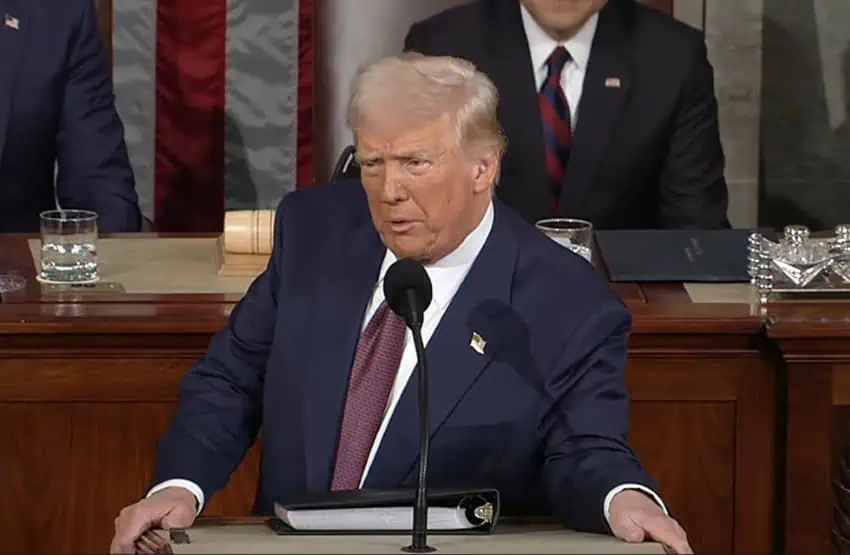
An exemption for Mexico on the car tariffs currently appears unlikely, even though the North American auto industry is highly integrated, meaning that major automakers operating in Mexico would face tariffs when parts are shipped between the U.S. and Mexico and when automobiles assembled in Mexico are shipped to the U.S. for sale.
Asked on Wednesday afternoon whether the auto tariffs could be removed, Trump said they are permanent.
The New York Times reported that the auto tariffs “will go into effect on April 2, and will apply to finished cars and trucks that are shipped into the United States, including American brands whose automobiles are assembled overseas.”
The tariffs will also apply to auto parts.
‘The door is always open for a call’ with Trump
A reporter asked Sheinbaum whether she believed she would speak with Trump before April 2, when the U.S. government intends to impose reciprocal tariffs on some if not all imports.
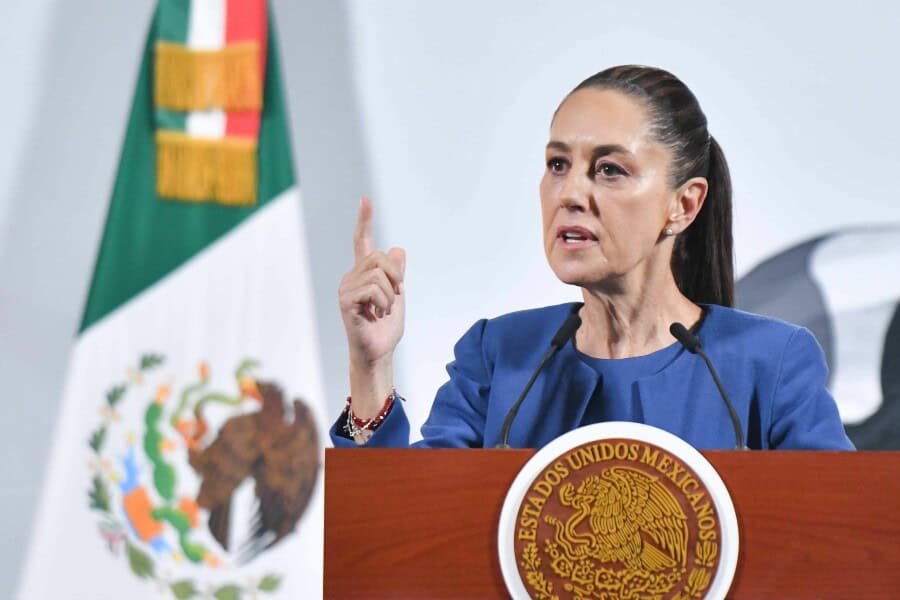
“We’re going to see whether it’s possible or not, and we’re going to wait to see what the proposal of the United States government is in terms of tariffs,” Sheinbaum said.
She highlighted that the United States is planning to impose tariffs on its imports from “all the countries of the world.”
Asked whether she would “directly” seek a call with Trump, the president responded:
“Yes. The door is always open for a call.”
After a call with Sheinbaum earlier this month, Trump suspended 25% tariffs on imports from Mexico that fall under the USMCA.
Sheinbaum’s greatest joys and sorrows as president
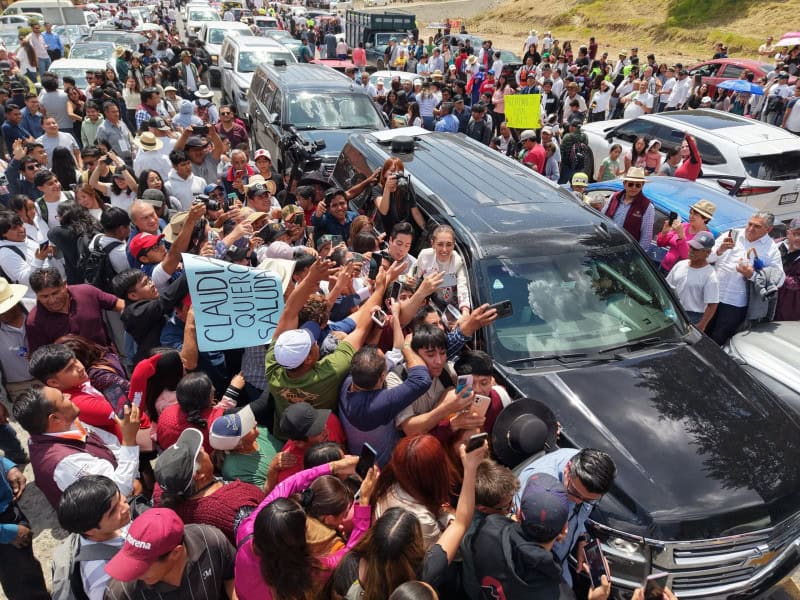
A reporter asked Sheinbaum to nominate her “saddest episode” and “happiest episode” since she was sworn in as president almost six months ago.
“You’ve made it difficult. The saddest? I’m thinking,” the president responded.
“There is always empathy and pain in the face of difficult situations of homicides that one sees every day in the security cabinet [meeting]. I would have to think [more to determine] which is my saddest moment,” Sheinbaum said.
“What one has to do is always keep working, regardless of the fact that one is human and that there are always feelings of empathy with victims,” she said.
“… The times that I really, really enjoy are the outings, the weekend tours [outside Mexico City] — the pure air, the closeness with the people,” Sheinbaum added.
“… The affection is very great, it’s mutual because the affection toward me goes back triple [to the people],” she said.
“Those moments are very moving, very, very, very moving and it’s an enormous joy,” Sheinbaum said.
Sheinbaum acknowledges strong support for her plan to combat missing persons crisis
A reporter highlighted that a Mexican newspaper — El Heraldo de México — published the results of a poll that found that 92% of 600 respondents agreed with the president’s plan to combat Mexico’s missing persons crisis.
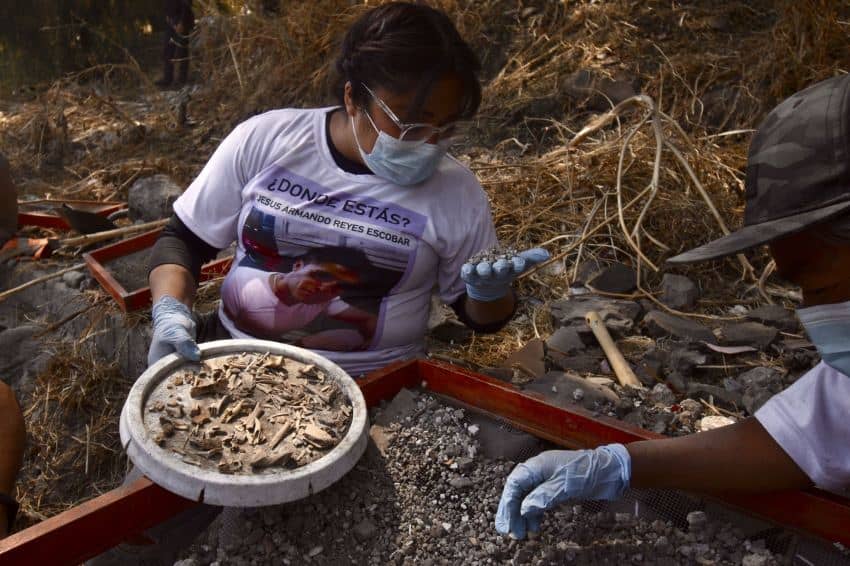
Sheinbaum last week announced six “immediate actions” against the crime of enforced disappearance.
On Wednesday, she said her government is responding to a problem that is “essential” to address.
“So 92% of people consider [the plan] appropriate. It’s good that it is being perceived in this way,” Sheinbaum said.
While El Heraldo de México detected strong support for the president’s plan, more than 150 search collectives, activists and relatives of victims of abduction and enforced disappearance were highly critical of it, saying that it reflected “a lack of knowledge about the institutional mechanisms and procedures that already exist in the country in search and investigation matters.”
By Mexico News Daily chief staff writer Peter Davies (peter.davies@mexiconewsdaily.com)
